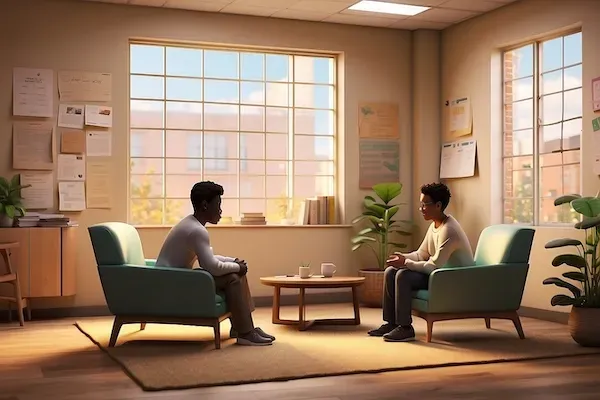
Reaching Students Who Don’t Reach Out
Years ago, a high school student came to school on a Monday morning and went straight to the (AP) Assistant Principal’s office for help.
The student shared with the AP that his father often beat him when he did not do well in sports and would even leave him on the side of the road to walk five miles home. After enduring such treatment for years, the student told the AP that he had left home on Sunday night and was staying with a friend.
The student was 16 so the AP told him that he would have to call Child Protection Services, to which the student told the AP that he understood, since CPS had received many calls over the years. Before sending the student to class, the AP asked him to talk to me, since I was one of the counselors on campus.
The AP brought Nate to my office and explained the situation. Nate was not interested in talking at all. So, after trying to have a conversation with him unsuccessfully, I let him know that talking to me was up to him and I would not pry. However, if he ever wanted to talk, I would be there.
It took a couple of weeks before Nate came by. Again, he was not very talkative. So, we talked about his job at Sonic, which he worked at until midnight each night. I always let him know how glad I was that he stopped by.
Nate began coming by more often after that and shared small amounts of information about his past. Eventually, he talked more and more.
One day, I mentioned that I had glanced at his transcript online and saw that he had a meritorious score on the State Aptitude Test. I let him know how impressed I was with his ability to achieve that score, survive and now, take care of himself. He had a good support system with his friends.
Eventually, Nate graduated and would at times, stop by to update me on a new girlfriend. He attended junior college, where he found a counselor that was quite helpful.
I never needed to know what had happened to him to provide support.
This week, when you walk through hallways, peek into a classroom, or hear a frustrated teacher speak of a student that just will not engage, take note, and invite the student into your office. Mention that you like to meet students and get to know what their interests are. Always listen for what they are interested in as an avenue to get them involved in the school community. This is especially true for students who get off track with behavioral issues.
The solution focused mindset can serve you well, no matter the issue.
Let the student guide you with her expertise and perhaps you too, can find your way into her life.
